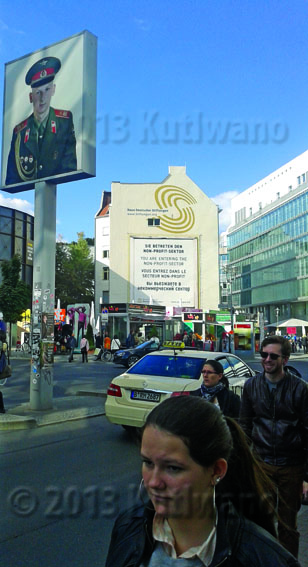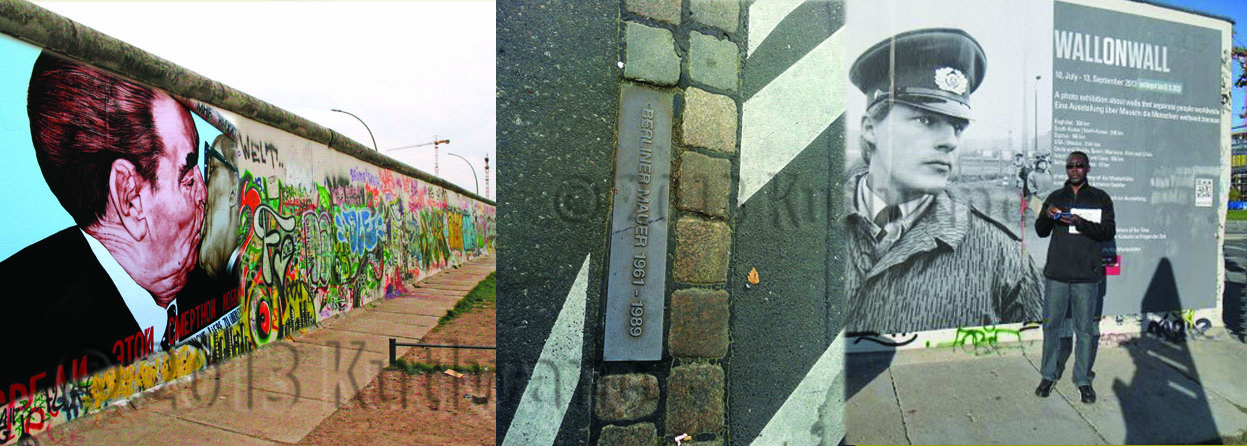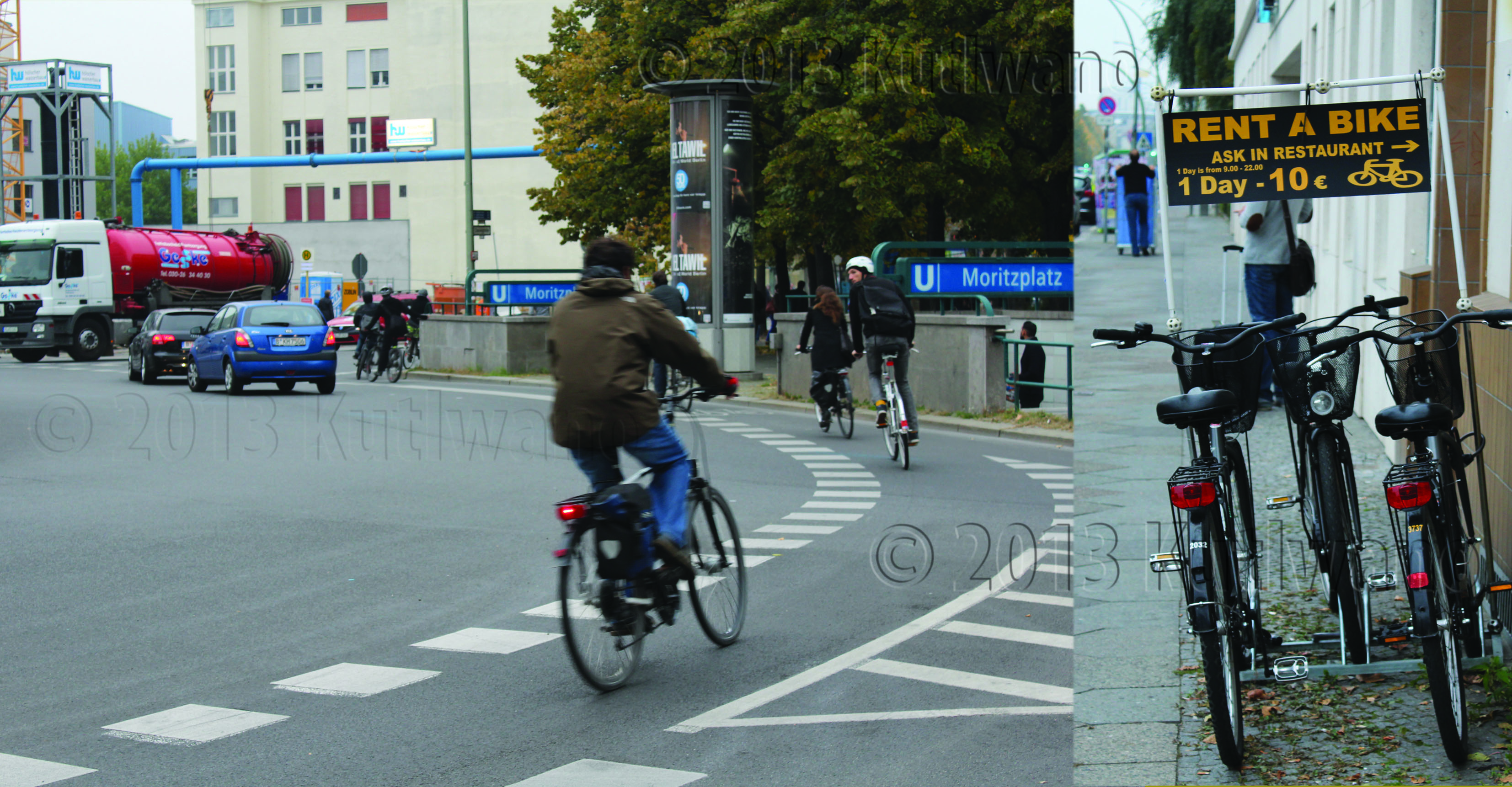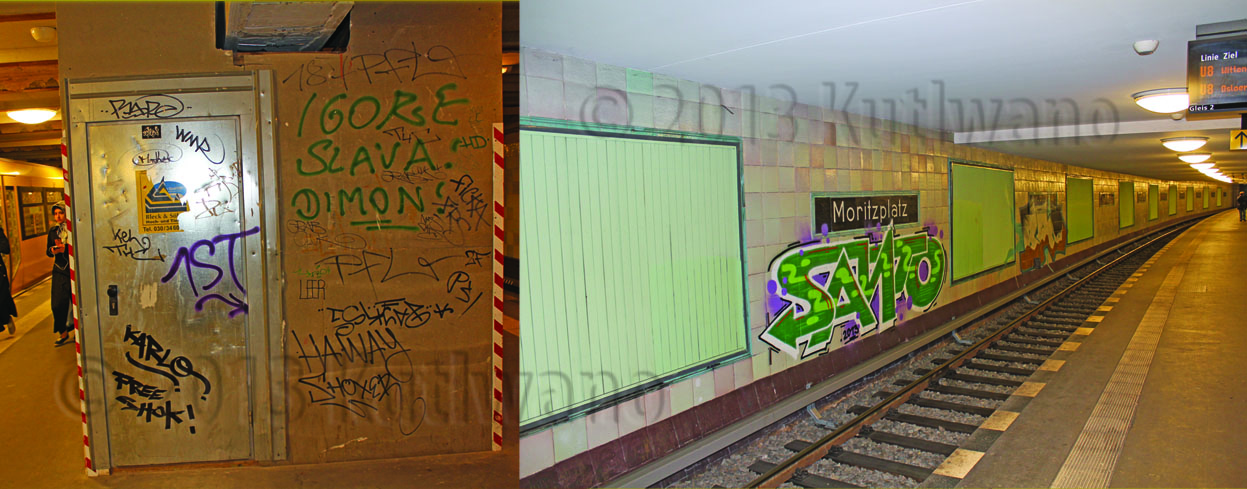THE IRON CURTAIN - Fall of the Berlin Wall …23 years on!
Source : Kutlwano
Author : Thomas Nkhoma
Location : BERLIN, Germany
Event : Travel
“Thomas, are you sure we are going the right direction?” For the umpteenth time, Stefan Latic asked me this question as the Metro bus cruised from the Taz, Die Tageszeitung newspaper offices through Rudi-Dutschke-Strase and OranienStrase (Street) to Motel One in Moritzplatz. Again and for the umpteenth time, I said yes but my colleague from Serbia was not convinced.
Unlike our Ghanaian colleague, Chris, who thought he was smart enough to traverse the streets of Berlin without a map but got lost, Stefan wanted to make sure that we did not fall into the same trap.
As Stefan repeatedly asked me this question, he reminded me of a story he told about a colleague who was drunk. Every time he looked at the driver of their car he would peep through the window and ask “tell me, how much did you pay for that thing?” Was he forgetful because he was drunk? All the same, he got the same answer every time he posed the question but he seemed not bothered to ask again!
However, for Stefan it was not about forgetting but making sure that, unlike Chris, we did not get lost in the matrix of Berlin`s streets. Seldom do you see the sun rising and setting hence getting your bearings correctly is not as simple as one would think.
Then I would ask Luicy Libre, our caretaker from Deutsche Welle Akademie, where east was. Instead of just pointing, she would say “let me see, I think it`s this side!” I would ask her again whether she was sure. She would just shrug her shoulders, a sign that she was not sure.
As I observed, most Berliners are also not pretty sure about their directions. They would hardly leave their homes without a copy of a map unless they are going to a place they are already familiar with. Even the city itself has maps mounted in almost every street corner. Now and then you see commuters standing next to a notice board reading a map before catching a ride on a Metro train or bus.
Incidentally, even the trains and buses have maps to guide commuters. This made me realise why Lucy gave us copies of maps immediately we touched down at Berlin airport. It is not easy to get by in Berlin without a map, at least for us none Berliners.
However, difficult as it may seem to get by in Berlin because of among others the language barrier, something you cannot take away from its people is their warmth and friendly demeanour. I cannot imagine what would have been the situation before the collapse of the Berlin Wall in 1990. Stefan`s question would have been more than just about getting the correct bearings but more about going to the right place where freedom was guaranteed and life was better.
Thus, during a divided Germany it was not easy to move from East into West Berlin. Neither was it a good thing to stay in East Germany. Besides being a physical division between West Berlin and East Germany from 1961 to 1989, the Berlin Wall was also a symbolic boundary between democracy and communism during the Cold War. I guess Stefan and I would not have liked to get lost and remained stuck in East Germany. Unlike the West, the East`s economy lagged behind while individual freedoms were severely restricted.
Consequently, by the late 1950s many wanted out and headed west to avoid the repressive living conditions in the east. This led to East Germany losing much of its labour force and population. Thus, by the 1960s around 2.5 million people had already crossed into West Germany. In a desperate move to stem the tide and stop the mass exodus, on the night of August 12, 1961, the East German government erected the Berlin Wall. As such, what was once a very fluid border became rigid. No longer could East Berliners cross the border for operas, plays or soccer games in the West.
This means Stefan and I would have missed the Friedrichstbt Palast, a theatre show that Lucy took us to, let alone watch a champions league match with our trainers, Werner Bogula and Henner Weithoner. No longer could the approximately 60 000 commuters head to West Berlin for well-paying jobs. No longer could families, friends, and lovers cross the border to meet their loved ones.
Whichever side of the border one slept in on the night of August 12, they got stuck in for decades. Stefan and I would not have wanted to get stuck in East Germany. A lot of Germans were killed and persecuted by border guards as they tried to run away from the German Democratic Republic (GDR) government. It would have been a chilling experience if we tried to escape.
However, as I got to realise, the Berlin Wall is now a relic of history. The Germans are as united as never before and it is hard to tell that this was once a divided nation, save for the monuments and historical artefacts that have now been confined to museums.
Each year on October 3, the Berliners converge on Brandenburg Gate to celebrate reunification day. During the GDR era, the gate was the opposite of that - division. One had to go through security checks to cross to either side. Some were not allowed to cross at all. Our caretaker, Lucy, could not help as she recalled the day her father crossed the gate a cried after years in exile.
Meanwhile, one amazing thing about Berlin is the graffiti that litters the city. It seems every wall must have some kind of graffiti, some sort of a culture so to say.
I ask one of our trainers, Joachim Vogele, what all this meant and he tells me the young generation is fond of it because. They say it looks hip though it is illegal. Joe, as we fondly call him, says it is a cat and mouse affair between authorities and artists but those caught pay heavily. However, some of it is legal and looks decent. Take the Berlin Wall for example. One of the attractions at the Wall is the famous “Brother`s kiss”, a painting depicting Soviet leader, Leonid Brezhnev, embracing East German President, Erich Honnecker, with a kiss after a speech he delivered during festivities to mark 30 years of the GDR in 1979.
Meanwhile, one other characteristic which caught my eye about Berlin is the mode of transport. Berliners, as much as they use Metro trains and buses, cycle a lot as well. Bicycles are almost everywhere so much that there are those for hire. For as little as ten euros (about P120) you can run your erands cycling around the city. Pew! And the chocolates! If you are the kind that likes to indulge then Berlin might be your next destination.
Interestingly, unlike other cities of the world, Berlin is cosy and the people are easy to get along with. Despite the fact that there are few black people, I and my colleagues from Ghana, Zimbabwe and South Africa, did not feel out of place.
We felt home because of the warmth and free spirit of the Berlin people. Parting with our hosts was never going to be easy as they wished we could stay longer.
But we had to go back home! We carried good memories with us and likewise left a lasting impression on our hosts. ENDS
Teaser:
Kutlwano editor, Thomas Nkhoma, recently visited Berlin, Germany on a two-week course on multimedia and online journalism. Together with eight other colleagues from Serbia, Jordan, Lebanon, South Africa, Zimbabwe and Ghana, Thomas had a rare treat to explore Berlin and Potsdam City. In this article, he shares his German experience...
















